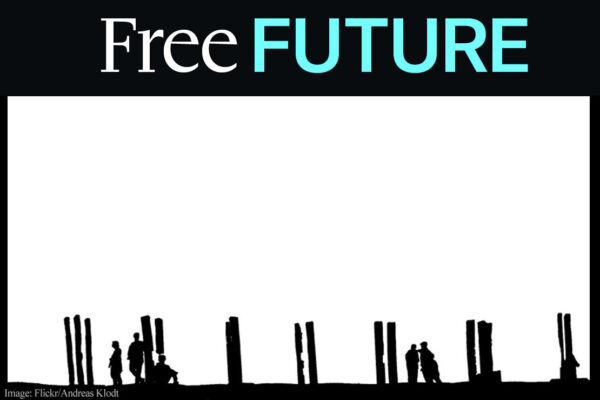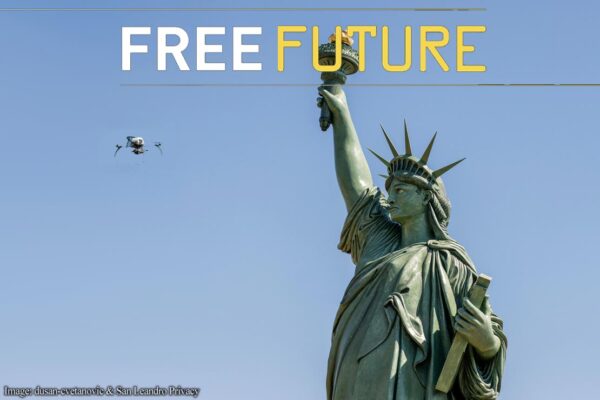ACLU Defends Internet Free Speech in Three Courts Coast to Coast
FOR IMMEDIATE RELEASE
NEW YORK-The American Civil Liberties Union fought censorship of the Internet from coast to coast this week, taking action in three separate courtrooms to make sure that free speech on the Internet does not get trampled.
On Thursday, the ACLU fought to preserve the free and open nature of the Internet as access shifts from dialup to cable modem. In a friend-of-the-court brief filed with the Ninth Circuit Court of Appeals, the ACLU asked the court to overturn an Federal Communications Commission ruling that classified cable Internet service as an "information service" rather than a "telecommunications service."
At stake in the fight over this seeming legal technicality is whether cable Internet services must remain neutral and open "common carriers" like the phone system, or whether they can become proprietary networks, under the complete control of their mega-media corporate owners and free to discriminate against disfavored content, Web sites, or points of view.
"Because an ISP can, and without competition will, control where a customer can and cannot go on the Internet, and under what conditions," the ACLU wrote in its brief, "cable Internet access monopolies threaten the First Amendment purposes the Internet now serves so well."
The ACLU's friend-of-the-court brief was filed in the case of Brand X Internet Services v. FCC. It is posted online at /Cyber-Liberties/Cyber-Liberties.cfm?ID=11164&c=16.
The brief attaches a technical study of cable open access commissioned by the ACLU. That report and other materials on broadband cable open access are online at: http://archive.aclu.org/issues/cyber/broadband.html.
On Wednesday, the ACLU filed a brief with the U.S. District Court in Massachusetts in the case of Edelman v. N2H2 on behalf of its client, Benjamin Edelman. At issue in the case is whether Edelman, a computer researcher, has First Amendment and "fair use" rights to examine the full list of sites contained in N2H2's Internet blocking program and to share his research tools and results with others.
Current copyright law and software licenses raise the possibility that Edelman's research, even though it is in an area where there is a clear public interest in open scrutiny and debate, could leave him liable under the Digital Millenium Copyright Act, N2H2's restrictive software license, and other laws. The ACLU's brief is a response to N2H2's motion to dismiss the case.
The ACLU's brief is online at /Cyber-Liberties/Cyber-Liberties.cfm?ID=11154&c=59
An ACLU feature on the Edelman v. N2H2 case is online at http://archive.aclu.org/issues/cyber/Edelman_N2H2_feature.html
On Tuesday, the ACLU asked the Third Circuit Court of Appeals in Philadelphia to leave in place an injunction against the Child Online Protection Act (COPA), Congress' second attempt to censor the Internet. The Act makes it a crime for Web publishers to post material that is "harmful to minors."
The Supreme Court had remanded the case, Ashcroft v. ACLU, back to the circuit court last spring. Though the Justices disagreed with the reasoning of the Third Circuit's earlier opinion in the case, it left the injunction against COPA in place.
"We thought the arguments went well, and we are optimistic that the judges will keep the preliminary injunction against COPA in place to protect valuable web publishers from prosecution," said Ann Beeson, the ACLU attorney who appeared before the court. The ACLU represents a broad range of plaintiffs in the case, including Salon Magazine, the Sexual Health Network, and PlanetOut, a news and entertainment website geared toward a lesbian and gay audience.
Beeson said the Third Circuit will likely issue a new decision in the next few months, at which point the losing party can either ask the Supreme Court to hear the case again, or return to the trial court for a full trial.
An ACLU feature on Ashcroft v. ACLU is online at http://archive.aclu.org/issues/cyber/Ashcroft_v_ACLU_feature.html



